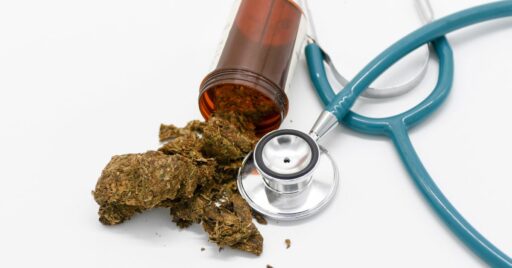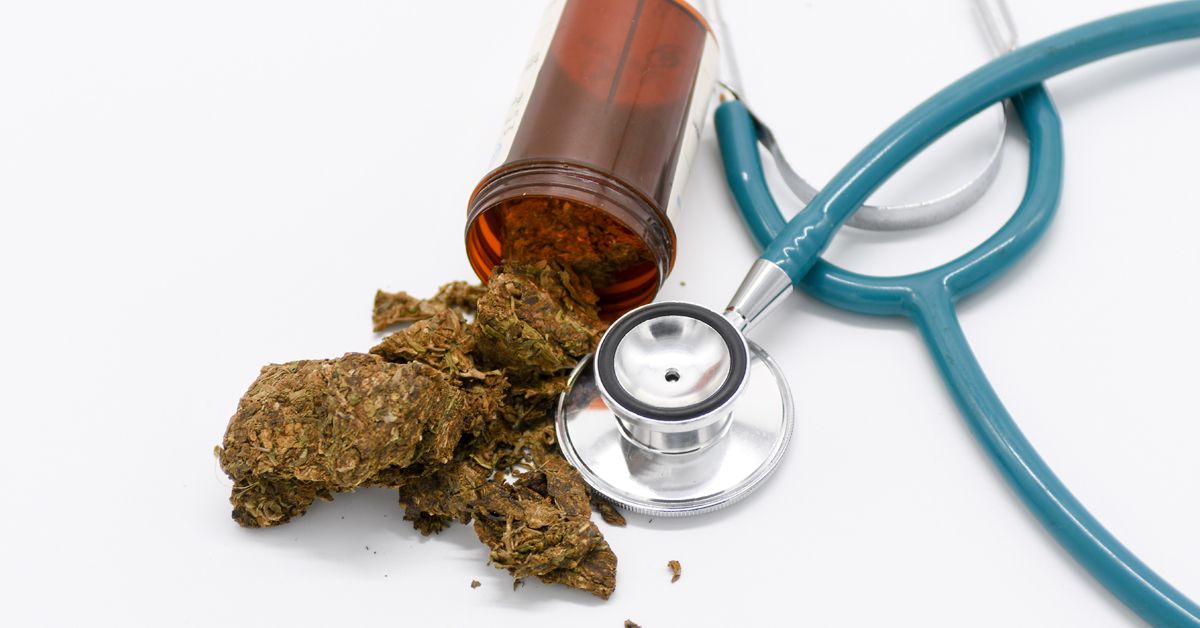Navigating the complexities of obtaining a medical marijuana card can be daunting. This guide provides a comprehensive step-by-step approach to help you understand the legal requirements, prepare your application, and ensure you remain compliant with the laws. Whether you’re dealing with qualifying conditions, gathering documentation, or understanding purchase limits, this guide aims to simplify the process and clarify the necessary steps to legally obtaining and using a medical marijuana card.
Key Takeaways
- Understanding the distinction between federal and state laws on medical marijuana is crucial for compliance and legal protection.
- Knowing the specific qualifying conditions, age, and residency requirements in your state is essential before applying for a medical marijuana card.
- Gathering the necessary documentation and choosing a qualified healthcare provider are critical steps in preparing a successful application.
- Familiarizing yourself with the application process, including submission of medical records and the expected timeline for approval, will help manage expectations.
- After obtaining your card, it’s important to understand the legal responsibilities, including purchase limits, renewal processes, and compliance with possession laws.
Understanding the Legal Landscape

Federal vs. State Laws on Medical Marijuana
The interplay between federal and state laws on medical marijuana is complex and often confusing. Federal law classifies marijuana as a Schedule I substance, indicating a high potential for abuse and no accepted medical use. However, many states have enacted their own laws to allow the use of marijuana for medical purposes.
- Federal Law: Marijuana is illegal under the Controlled Substances Act.
- State Laws: Vary widely; some states allow medical marijuana, others allow recreational use, and some prohibit marijuana entirely.
It’s essential to understand the specific laws in your state, as they will dictate the legalities of obtaining and using a medical marijuana card. Compliance with state laws does not exempt individuals from potential federal legal consequences.
Before applying for a medical marijuana card, check the current status of your state’s laws. A reliable source for this information is a state government website or a reputable website that provides news and information on marijuana, including legalization, industry, laws, health benefits, and strains.
Qualifying Conditions for a Medical Marijuana Card
Each state has its own list of qualifying conditions for a medical marijuana card, reflecting the ailments and disorders that medical cannabis is believed to benefit. Common conditions include chronic pain, multiple sclerosis, epilepsy, and glaucoma, among others. It’s essential to review your state’s specific list, as it can vary significantly from one jurisdiction to another.
- Chronic Pain
- Cancer
- HIV/AIDS
- Epilepsy
- Glaucoma
- PTSD
- Amyotrophic Lateral Sclerosis (ALS)
Before applying for a medical marijuana card, ensure that your medical condition is included on the state’s qualifying list. This is a crucial step in the process and can save you time and effort.
Remember that the list of qualifying conditions is subject to change as new research emerges and state laws evolve. Stay informed by regularly checking for updates, especially if your condition is not currently listed but may be considered in the future.
Age and Residency Requirements
To be eligible for a medical marijuana card, applicants must meet specific age and residency criteria. Most states require applicants to be at least 18 years old, but there are exceptions for minors with qualifying conditions who may apply with parental consent or through a legal guardian.
- Residency: Applicants must typically prove they are residents of the state where they are applying for the card. This often involves providing a state-issued ID or other proof of residency.
- Age: The standard minimum age is 18; however, minors can apply under certain conditions, such as having a debilitating medical condition that qualifies under the state program.
It is crucial to understand the specific requirements of your state’s program, as they can vary significantly. Always check with your state’s health department or the appropriate regulatory agency to ensure you have the most current information.
Remember that these requirements are in place to ensure that only eligible individuals can access medical marijuana legally and safely within their state.
Preparing for Your Application

Gathering Necessary Documentation
Before you can apply for a medical marijuana card, you’ll need to gather a set of documents that verify your identity, residency, and medical condition. Ensure all documents are current and valid to avoid delays in the application process.
The primary documents you’ll need include:
- A government-issued photo ID (e.g., driver’s license, state ID, or passport)
- Proof of residency in the state where you’re applying (e.g., utility bill, bank statement, or rental agreement)
- Medical records detailing your qualifying condition
It’s crucial to check with your state’s health department for any additional or specific documentation requirements. Some states may require a form or letter from a qualified healthcare provider.
Remember to review the guidelines provided by your state’s health department or the RAB Medical Marijuana Identification Card Program for detailed information on the necessary forms and any other required paperwork.
Choosing a Qualified Healthcare Provider
Selecting a healthcare provider who is qualified to recommend medical marijuana is a critical step in obtaining your card. Ensure the provider is registered with your state’s medical marijuana program and has a history of working with cannabis patients. This will not only streamline the process but also enhance the quality of care and guidance you receive.
- Research providers in your state’s registry
- Check for providers with positive patient reviews
- Verify the provider’s credentials and experience with medical marijuana
It’s important to have an open and honest conversation with your healthcare provider about your medical history and the reasons you are considering medical marijuana as a treatment option. This dialogue will help determine if medical marijuana is appropriate for your condition and what specific type of cannabis might be most beneficial.
Understanding the Costs Involved
When preparing to apply for a medical marijuana card, it’s crucial to understand the associated costs, which can vary widely by state. Application fees are mandatory, and they are non-refundable, even if your application is denied. Additionally, you may incur costs for doctor consultations and obtaining medical records.
Here’s a breakdown of potential costs you might encounter:
- Application fee: This is the fee required to process your application. It varies by state and can range from $25 to $100.
- Doctor’s consultation: Some states require an evaluation by a qualified healthcare provider, which can cost between $50 and $200.
- Medical records: There may be a fee for obtaining a copy of your medical records.
It’s important to budget for these expenses ahead of time, as they can add up. Some states offer reduced fees for patients with financial hardship, so it’s worth researching if you qualify for any fee waivers or reductions.
Navigating the Application Process

Completing the Application Form
Once you’ve confirmed your eligibility and gathered the necessary documentation, the next step is to complete the application form for your medical marijuana card. This form is typically provided by your state’s health department or a designated regulatory agency.
- Ensure all personal information is accurate and matches your identification documents.
- Answer all questions truthfully and to the best of your knowledge.
- If the application allows, include your healthcare provider’s certification as part of the submission.
Remember, the accuracy of your application is crucial. Any discrepancies or errors can lead to delays or even denial of your medical marijuana card.
After filling out the application, double-check all entries before submission. Some states may require an application fee, which should be submitted along with the form. Keep a copy of the completed form and any receipts for your records.
Submitting Medical Records
Once you’ve completed the application form, the next step is to submit your medical records. These records should provide evidence of your qualifying condition and must be current. It’s essential to ensure that all documentation is clear and legible to avoid any delays in the review process.
Submit your medical records promptly to keep the application process moving forward. Here’s a list of common documents you might need to include:
- A signed physician’s recommendation
- Proof of diagnosis
- Treatment history
- A list of current medications
Remember, the exact documents required can vary by state, so it’s important to check with your local regulations. Some states may also require a ‘project description’ or similar narrative to understand your need for medical marijuana.
After submitting, keep a copy of all documents for your records. If there are any questions or additional information needed, having easy access to your medical history can expedite the process.
Application Review and Approval Timeline
Once you’ve submitted your application for a medical marijuana card, the waiting game begins. The timeline for review and approval can vary significantly from state to state. It’s important to be patient and to check in with your state’s program for any updates or additional requirements that may arise during the review process.
For example, in some states like California, the state has a mandated timeframe within which to process your application. After submission, they have up to 30 days to review your application, and if approved, they must issue your card within five days. This structured timeline provides applicants with a clear expectation of the waiting period.
Remember, the actual time it may take to get your medical marijuana card can be influenced by several factors, including the volume of applications being processed and the completeness of your application.
If you encounter delays or have questions, it’s advisable to reach out to the healthcare provider who assisted with your application or the state’s medical marijuana program office.
After Receiving Your Medical Marijuana Card

Purchasing from Licensed Dispensaries
Once you have your medical marijuana card, you can legally purchase cannabis from licensed dispensaries. These dispensaries are regulated by the state and are the only legal outlets for medical marijuana. It’s important to note that each state has its own list of approved dispensaries, and not all dispensaries may carry the same products or strains.
- Always check the dispensary’s credentials to ensure they are state-approved.
- Inquire about the types of medical marijuana products available, as selection can vary.
- Be prepared to show your medical marijuana card and a government-issued ID every time you make a purchase.
Remember, the goal of the medical marijuana program is to provide relief for your condition, so take the time to find the right product and dosage for your needs.
Costs can also vary by dispensary and by state. For example, the Low THC Oil Registry in Georgia issues cards that cost twenty-five dollars and are valid for two years. Always inquire about the costs of products and any additional fees to budget accordingly.
Knowing Your Purchase Limits
Once you have your medical marijuana card, it’s crucial to understand the limits on how much you can purchase and possess. States have set specific thresholds to regulate the amount of medical marijuana a patient can buy within a given period, usually a month. These limits are in place to prevent abuse and diversion to non-patients.
For example, in some states, patients might be allowed to purchase up to 2.5 ounces of flower or its equivalent in other forms every two weeks. It’s important to check with your local dispensary or state regulations to know the exact limits applicable to you.
Remember, exceeding these limits can result in legal penalties, including the revocation of your medical marijuana card.
Here’s a quick reference table for a hypothetical state’s purchase limits:
| Product Type | Limit per 14 Days |
|---|---|
| Flower | 2.5 ounces |
| Concentrates | 5 grams |
| Edibles | 5000 mg THC |
Always keep track of your purchases and stay within the legal boundaries to ensure you remain compliant with state laws.
Renewing Your Medical Marijuana Card
Renewing your medical marijuana card is an important step to ensure continuous access to your medication. Most states require renewal annually, but the specific timeframe can vary. It’s crucial to start the renewal process well before your card expires to avoid any lapse in eligibility.
- Check your state’s renewal requirements well in advance.
- Schedule an appointment with your healthcare provider if necessary.
- Prepare the renewal fee, which may differ from the initial application fee.
Remember, a lapse in your card’s validity could disrupt your treatment and may lead to legal issues. Always keep your information up to date and submit renewal applications on time.
Legal Responsibilities and Compliance

Understanding Possession Laws
Once you have obtained your medical marijuana card, it’s crucial to understand the possession laws that apply in your state. Possession limits vary widely, and exceeding these can lead to legal consequences. Typically, states set a limit on the amount of marijuana you can possess at any given time, often measured in ounces or by a certain number of plants.
- For example:
- Some states may allow up to 2 ounces of usable marijuana.
- Others may permit the cultivation of up to 6 plants, with no more than 3 mature at one time.
Remember, these laws are subject to change, and it’s important to stay informed about the current regulations in your state to ensure compliance.
Additionally, the form of marijuana (e.g., flower, edibles, concentrates) can also affect possession limits. Be sure to check if your state has specific guidelines for each type of product. Keeping abreast of these rules will help you avoid legal issues and ensure that you can continue to use medical marijuana as part of your treatment plan.
Traveling with Medical Marijuana
When planning to travel with medical marijuana, it’s crucial to understand the complexities involved. Different states have varying laws regarding the transportation of cannabis, even for medical use. Before you travel, check the legal status of medical marijuana in both your departure and destination locations.
- Always carry your medical marijuana card and a government-issued ID.
- Keep the original packaging and labels intact.
- Be aware of the quantity limits for transportation.
Remember, traveling across state lines with medical marijuana is illegal under federal law, regardless of the laws in each state.
If you’re traveling by air, be mindful that the Transportation Security Administration (TSA) is governed by federal law. While TSA agents are not specifically looking for drugs, if they come across marijuana during security screenings, they are required to report it to law enforcement.
Dealing with Employment and Housing Issues
Navigating the intersection of medical marijuana use and employment can be complex. Employers may have different policies regarding medical marijuana, ranging from zero tolerance to accommodations for medical use. It’s essential to understand your rights and the laws in your state. For instance, some states have laws that protect medical marijuana patients from employment discrimination.
When it comes to housing, tenants who are medical marijuana cardholders face a different set of challenges. Federal law still classifies marijuana as an illegal substance, which can affect federal housing assistance. However, some states provide protections for medical marijuana patients. Always review your lease agreements and understand your rights under state law.
Remember, while some states protect the rights of medical marijuana users, these protections can vary widely. It’s crucial to stay informed and proactive about your rights in both employment and housing situations.
Here’s a quick checklist to consider when dealing with employment and housing issues as a medical marijuana cardholder:
Conclusion
Securing a medical marijuana card can be a straightforward process if you follow the correct steps and meet the necessary criteria. It’s important to remember that regulations and requirements can vary significantly from one state or country to another, so always ensure you’re well-informed about the specific laws in your area. By consulting with a healthcare provider, gathering the required documentation, and submitting a thorough application, you can navigate the system effectively. Once you have your medical marijuana card, it’s crucial to use it responsibly and in accordance with the law. We hope this guide has provided you with a clear roadmap to obtaining your medical marijuana card and that it serves as a valuable resource on your journey to managing your health with the help of medical cannabis.
Frequently Asked Questions
Is medical marijuana legal at the federal level in the United States?
No, medical marijuana is not legal at the federal level in the United States. It remains classified as a Schedule I drug under the Controlled Substances Act. However, many states have legalized it for medical use, and federal enforcement has generally deferred to state laws in this area.
What are some common qualifying conditions for obtaining a medical marijuana card?
Qualifying conditions vary by state, but often include chronic pain, multiple sclerosis, epilepsy, cancer, PTSD, HIV/AIDS, glaucoma, and other debilitating medical conditions as determined by a qualified healthcare provider.
Do I need to be a resident of the state to apply for a medical marijuana card there?
Yes, most states require applicants to provide proof of residency to apply for a medical marijuana card. This ensures that the card is only used within the legal jurisdiction of the state.
What kind of documentation will I need to gather for my medical marijuana card application?
Typically, you will need to provide a valid government-issued ID, proof of residency, medical records documenting your qualifying condition, and a recommendation or certification from a qualified healthcare provider.
How long does it take to get approved for a medical marijuana card after submitting my application?
The timeline for approval can vary by state, but it generally takes a few weeks to a couple of months. Some states offer a temporary card or letter that can be used in the interim.
Can I travel with my medical marijuana, and are there any restrictions?
Traveling with medical marijuana can be complex due to differing state laws and the fact that it is illegal under federal law. It’s essential to research the laws of the states you plan to visit and understand that it is illegal to cross state lines with marijuana, even if you are traveling between two states where it is legal.





